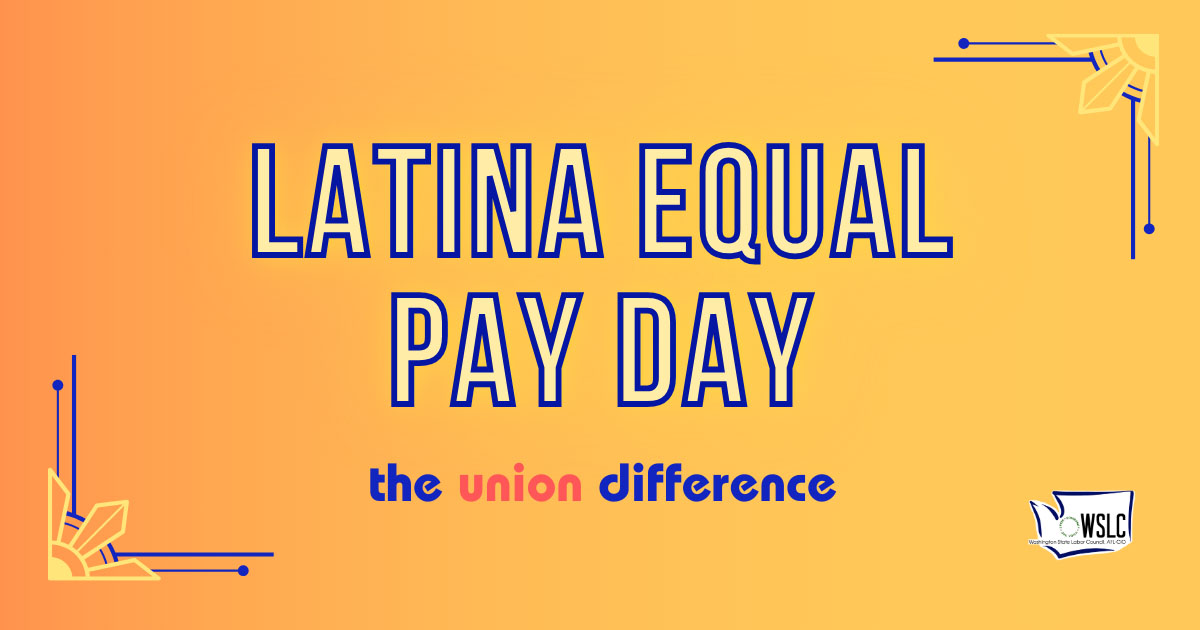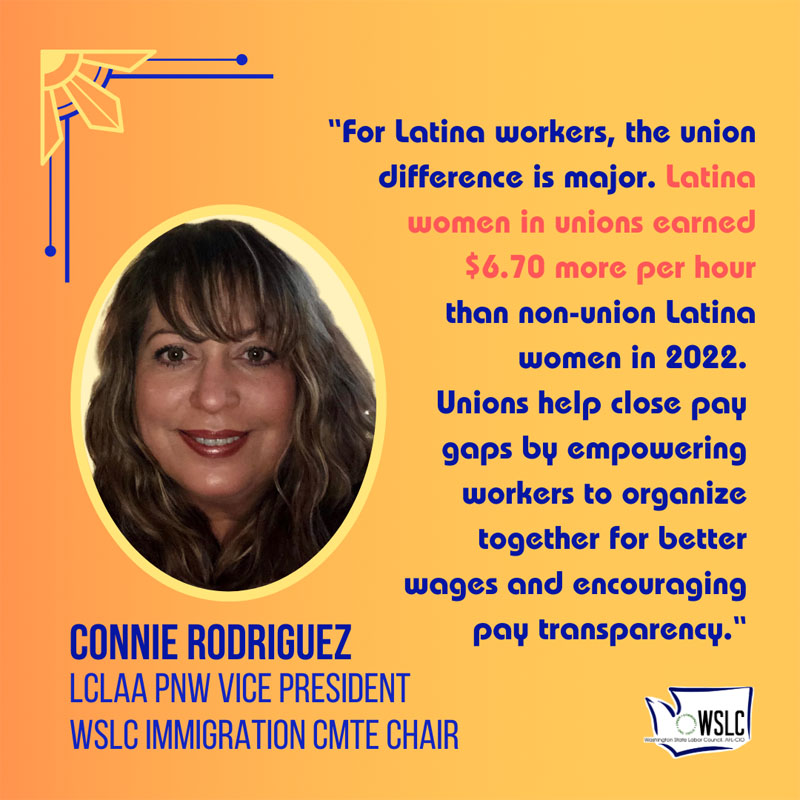OPINION
Union difference is huge for Latina workers
Latina Equal Pay Day reminds us more work is needed to close the pay gap
By CONNIE RODRIGUEZ
(Oct. 5, 2023) — Latinas are one of the fastest growing groups of workers in the United States, opening new businesses and enrolling in colleges and degree programs in record numbers. Latinas are excelling in every sector and industry in our country.
Despite all of this, we are still fighting for economic security, to be able to live and work with dignity and to be less vulnerable to different forms of violence, including sexual harassment. Latina Equal Pay Day calls attention to this ongoing fight for economic justice and respect.

On average, a Latina worker earns only 52 cents on the dollar compared to her white, non-Hispanic male counterpart. Latina workers are also more likely to suffer wage theft violations than their male Latino counterparts and to experience sexual assault in the workplace at much higher rates than men.
In light of these findings, the Labor Council for Latin American Advancement (LCLAA) launched the Trabajadoras Campaign in 2012 to raise awareness about the Latina Pay Gap and to fight for equal pay and dignified conditions for Latinas on the job. The campaign is a wide-reaching education and engagement program that highlights the difficulties faced by Latinas inside and outside of the workplace – and demonstrates how union membership lifts up Latina workers. Through this campaign, LCLAA looks to empower Latinas to speak out and ensure their rights, both at work and at home.

For Latina workers, the union difference is major. Latina women in unions earned $6.70 more per hour than non-union Latina women in 2022. Union workers are more likely to have access to paid sick leave, a crucial benefit for ensuring women, who often take care of children or other family members, don’t have to choose between taking time off and affording rent.
Across the board, unionized Latino workers experienced more stable employment and maintained higher wages than their non-union counterparts, a trend that holds true across all races and genders. Unions help close pay gaps by empowering workers to organize together for better wages and encouraging pay transparency. Beyond the jobsite, organized labor helps close the pay gap by advocating for policies that benefit all workers, like higher minimum wages, paid sick leave, and paid family leave.
We’ve made progress, but there’s more work to be done. As substantial investments are made in state infrastructure, we must recruit more women into well-paying, union jobs in construction, transportation, and more. At the federal level, organized labor can advocate for economic justice legislation like the federal Paycheck Fairness Act, and a minimum of seven paid sick days for all workers nationwide.
As workers, we also have a role to play in fighting for economic justice for Latina workers. We must educate ourselves on the issues that Latina workers face – like wage theft, sexual harassment, and anti-immigrant bias – and work together to ensure our Latina siblings have security and dignity on the job. Union members can join their local LCLAA chapters, and plug in to ongoing work towards achieving economic security.
Together, we can close the Latina Pay Gap and build power for all working people.
 Connie Rodriguez is Vice President of the Pacific Northwest chapter of Labor Council for Latin American Advancement (LCLAA). She is also a Vice President of the Washington State Labor Council, AFL-CIO and serves as Chair of the WSLC’s Immigration Committee.
Connie Rodriguez is Vice President of the Pacific Northwest chapter of Labor Council for Latin American Advancement (LCLAA). She is also a Vice President of the Washington State Labor Council, AFL-CIO and serves as Chair of the WSLC’s Immigration Committee.





